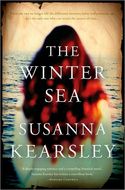
 In his memoir, I WANTED TO WRITE, Kenneth Roberts, famous for his bestselling historical novels of the American northeast, pointed out (quite rightly) that:
In his memoir, I WANTED TO WRITE, Kenneth Roberts, famous for his bestselling historical novels of the American northeast, pointed out (quite rightly) that:
“Historians have a great advantage over a novelist in that they can state a supposed fact without explaining it…An historian can announce that a hitherto unmentioned Indian suddenly appeared in the ranks of a lost and bewildered [army] detachment and guided it to safety; he is not required to explain how the Indian got there, or who he was, or why he hadn’t acted as a guide before the detachment was lost. The novelist can’t be so mysterious.
“An historian can state that an army has provisions for only fifteen days; then coolly permit that army to exist for twice that length of time without explaining the miracle. A novelist must find out how the army escaped starvation, and explain it to the complete satisfaction of the reader. Otherwise his story doesn’t, as the saying goes, hold water. Each omission is a hole in his tale. Most histories are filled with holes and leak like sieves.”
Filling these holes can be one of the greatest challenges I face when writing a book like THE WINTER SEA, with a story that’s based on real incidents, because often the details I need can’t be found in the history books.
Sometimes, I can fill the holes with research of my own. For example, the hero of my past story, John Moray, was wanted by the English, who had offered a prize of £500 – a huge sum in those days – to any man who captured him. I knew this fact because it was included in the very detailed memoirs of Nathaniel Hooke, with whom Moray was traveling in the spring of 1707. But Hooke never said why the English wanted Moray so badly, and most historians never even mentioned it (or Moray) at all. I had to do some digging of my own, through journals and letters and the records of the British House of Lords, to learn how Moray came to have a price upon his head. In the process I was able to fill in some missing details of his family – some I’ve never seen in any other history book – and what I found helped me to understand Moray a little bit better, and allowed me to give him a more interesting backstory in my novel than he would have had otherwise.
Sometimes, depending on the nature of the hole, there’s nothing that can guide me in my research but my knowledge of a character, and so I have to guess. Another of the real-life characters in the past story of THE WINTER SEA is a naval captain, Thomas Gordon, who’d been commodore of the Old Scots Navy before the Act of Union passed in 1707 and the few Scottish ships were absorbed into the combined Royal Navy of the newly-created Great Britain. Gordon, an avowed Jacobite, was instrumental in keeping the waters around Slains Castle clear for the French ships that came and went during the preparations for the invasion. He was also a great friend to the Countess of Erroll and her son, the earl, and he was loyal to the Stewart cause his whole life, choosing to resign his commission in the Royal Navy in 1714 when they would have required him to take an oath renouncing James III’s right to the throne, and instead joining the Russian navy of Peter the Great at St. Petersburg, where he rose to be an Admiral while continuing to act as a very active liason between King James III and the Russian Jacobites. That’s a fact.
Yet it’s also a fact that, when the French fleet carrying the young King James to Scotland in the spring of 1708 was intercepted at the Firth of Forth by the Royal Navy, there was a fierce battle that lasted all day and all night, and when it had ended the only British captain who had claimed a French ship as his prize was…Captain Thomas Gordon. Which made no sense to me, since his background and loyalties ought to have made him the one British captain who wouldn’t have wanted to capture a French ship. Nobody, not even Gordon himself, has explained why he did this – but as a novelist, I had to explain it, because if I was surprised by Gordon’s actions in that battle, I knew my readers would be, too. So I had to make a very careful study of the facts, with what I knew of Gordon’s character, and try to come up with a logical reason why he, of all people, captured that ship.
I still have some holes I can’t fill, yet. The Countess of Erroll, a brave and intelligent woman who risked her property and life in support of the Stewarts and stood at the centre of much of the intrigue that went on around the failed ’08 invasion attempt, disappears from the history books afterwards. The historians, who’ve moved on to new events, don’t seem to notice her missing. But I do. I’m still sifting letters and documents, trying to learn what she did after that, when she died, where she’s buried. I’m mildly obsessed, since I came to admire her so much while doing my research, and one day I’d like to be able to finish her story the way she deserves.
But some days I do envy historians, who can just skip to the next part without explanations and say, “Meanwhile, over in France…,” leaving holes that they don’t have to fill.
THE WINTER SEA BY SUSANNA KEARSLEY – IN STORES DECEMBER 2010
History has all but forgotten…
In the spring of 1708, an invading Jacobite fleet of French and Scottish soldiers nearly succeeded in landing the exiled James Stewart in Scotland to reclaim his crown.
Now, Carrie McClelland hopes to turn that story into her next bestselling novel. Settling herself in the shadow of Slains Castle, she creates a heroine named for one of her own ancestors and starts to write.
But when she discovers her novel is more fact than fiction, Carrie wonders if she might be dealing with ancestral memory, making her the only living person who knows the truth—the ultimate betrayal—that happened all those years ago, and that knowledge comes very close to destroying her…
About the Author
After studying politics and international development at University, Susanna Kearsley worked as a museum curator before turning her hand to writing. Winner of the UK’s Catherine Cookson Fiction prize, Susanna Kearsley’s writing has been compared to Mary Stewart, Daphne DuMaurier, and Diana Gabaldon. Her books have been translated into several languages, selected for the Mystery Guild, condensed for Reader’s Digest, and optioned for film. THE WINTER SEA was a finalist for both a RITA award and the UK’s Romantic Novel of the Year Award, and is a nominee for Best Historical Fiction in the RT Book Reviews Reviewers Choice Awareds. She lives in Canada, near the shores of Lake Ontario. For more information, please visit her website.
To comment on Susanna Kearsley’s blog please click here.


No Comments
Comments are closed.